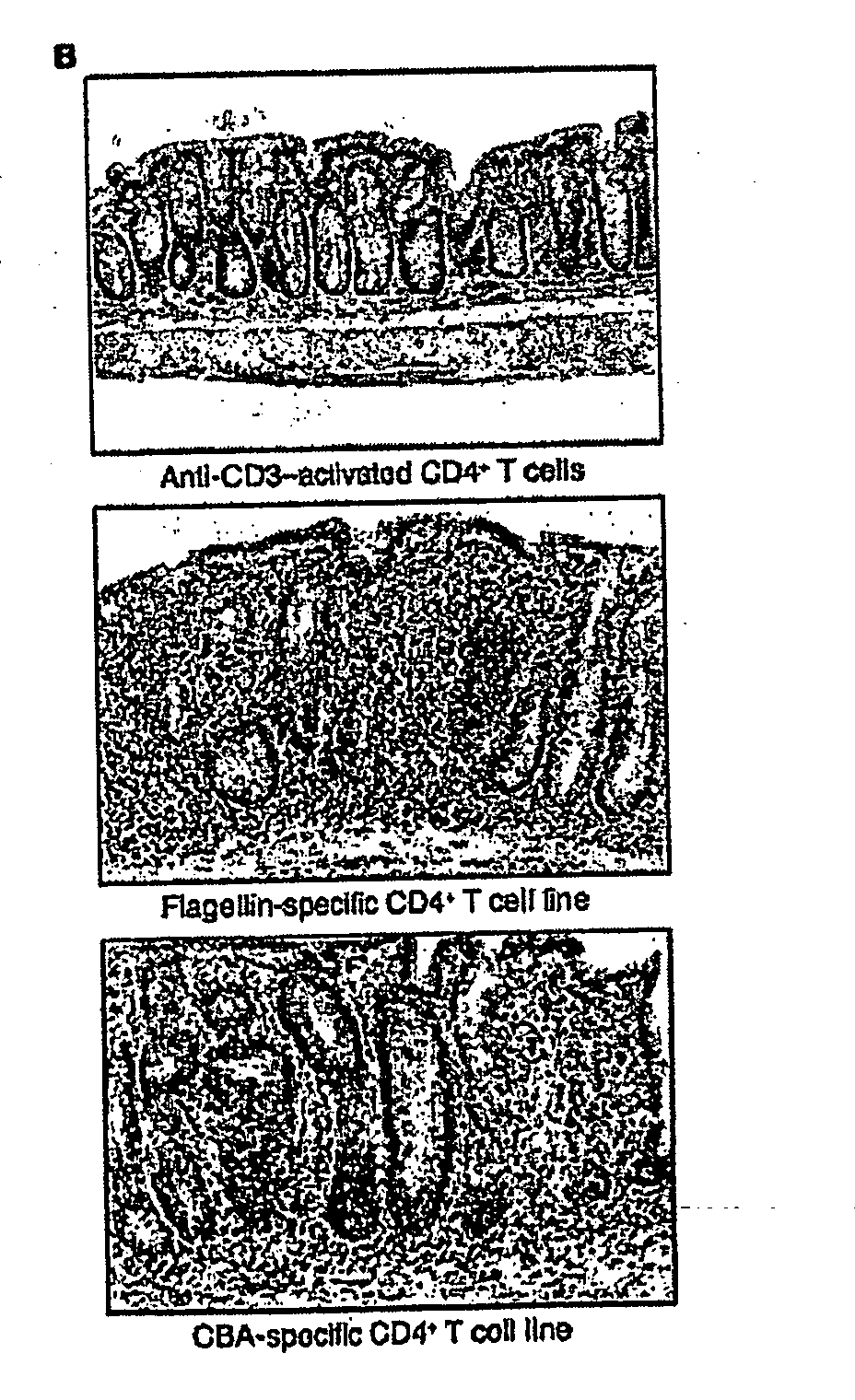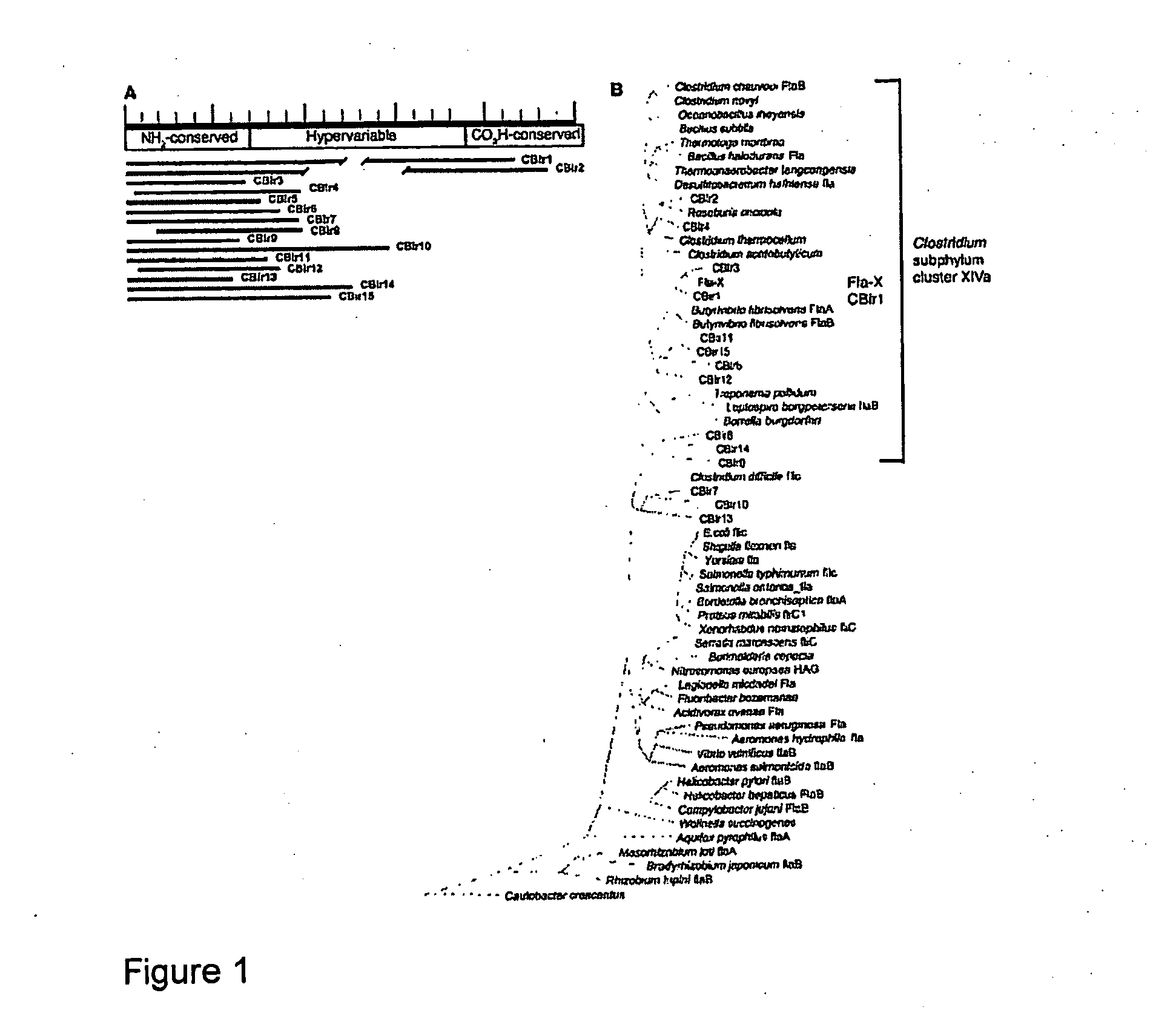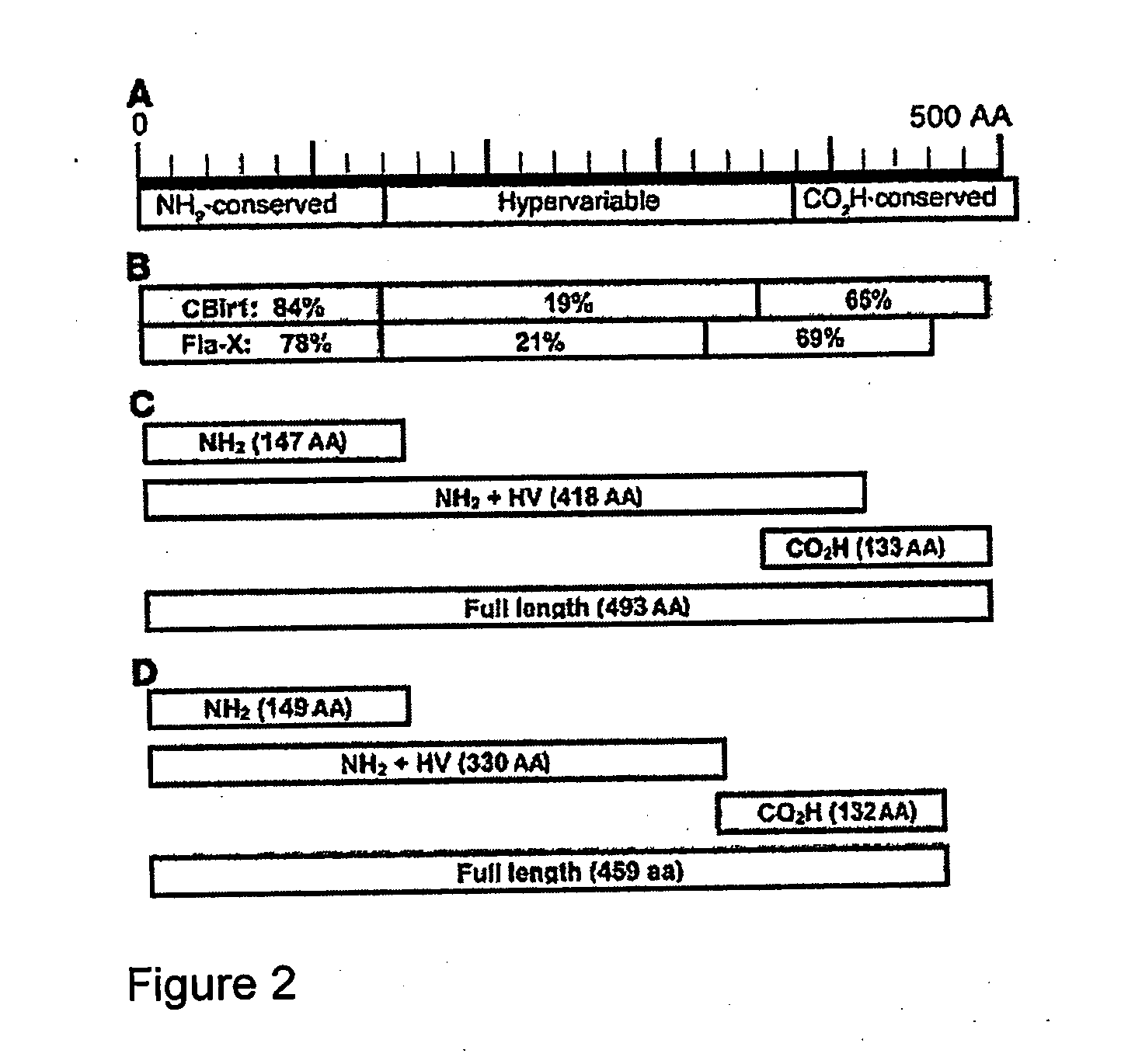Methods for diagnosis and treatment of crohn's disease
a crohn's disease and treatment method technology, applied in the field of medicine, can solve the problems of significant challenge to the identification of the complex intestinal microflora
- Summary
- Abstract
- Description
- Claims
- Application Information
AI Technical Summary
Benefits of technology
Problems solved by technology
Method used
Image
Examples
example 1
Isolation of Genomic DNA of Mouse Cecal Bacterium
[0085]Pelleted bacteria from C3H / HeJBir mouse ceca were inactivated at 80° C. for 20 minutes and then were treated with 2 ml lysozyme (20 mg / ml in Tris-EDTA [TE] buffer) for 1 hour at 37° C. This solution was rocked at room temperature for 10 minutes with 40 μl proteinase K (10 mg / ml) and 140 μl 20% SDS (Sigma-Aldrich, St. Louis, Mo., USA) and then incubated for 15 minutes at 65° C., then 0.4 ml of 5 M NaCl and 0.32 ml of a 10% cetyltrimethylammonium bromide (CTAB) solution (1 g CTAB [Sigma-Aldrich], 1.4 ml 5M NaCl, and 8.6 ml distilled H2O) was added, followed by incubation at 65° C. for 10 minutes. DNA was then extracted twice with phenol, followed by extraction with phenol / chloroform / isoamyl alcohol (24:24:2), and then with chloroform. Finally the DNA was precipitated with 0.6 volumes of isopropanol and resuspended in TE buffer.
example 2
Genomic Expression Library Construction
[0086]A detailed description of library construction can be found in the following references: Lodes, M. J., Dillon, D. C., Houghton, R. L., and Skeiky, Y. A. W. 2004. Expression cloning. In Molecular diagnosis of infectious diseases. 2nd edition. J. Walker, series editor; J. Decker and U. Reischl, volume editors. Humana Press. Totowa, N.J., USA. 91-106. Briefly, 20 μg of genomic DNA of mouse cecal bacterium was resuspended in 400 μl of TE buffer and was sonicated for five seconds at 30% continuous power with a Sonic Dismembrator (Fisher Scientific, Pittsburgh, Pa., USA) to generate fragments of approximately 0.5-5.0 kb. DNA fragments were blunted with T4 DNA polymerase (Invitrogen, Carlsbad, Calif., USA) and were ligated to EcoRI adaptors (Stratagene, La Jolla, Calif., USA) with T4 DNA ligase (Stratagene). Adapted inserts were then phosphorylated with T4 polynucleotide kinase (Stratagene) and were selected by size with a Sephacryl 400-HR colum...
example 3
Expression Screening
[0087]Immunoreactive proteins were screened from approximately 6×105 plaque-forming units (PFU) of the unamplified cecal bacterium expression lambda library. Briefly, twenty 150-mm petri dishes were plated with E. coli XL1-Blue MRF′ host cells (Stratagene) and approximately 3×104 PFU of the unamplified library and were incubated at 42° C. until plaques formed. Dry nitrocellulose filters (Schleicher and Schuell, Keene, N.H., USA), pre-wet with 10 mM isopropyl β-thiogalactopyranoside (IPTG), were placed on the plates, which were then incubated overnight at 37° C. Filters were removed and washed three times with PBS containing 0.1% Tween 20 (PBST) (Sigma-Aldrich), blocked with 1.0% BSA (Sigma-Aldrich) in PBST, and washed three times with PBST. Filters were next incubated overnight with E. coli lysate-adsorbed C3H / HeJ Bir mouse serum (1:200 dilution in PBST), washed three times with PBST, and incubated with a goat anti-mouse IgG+IgA+IgM (heavy and light chain) alkali...
PUM
| Property | Measurement | Unit |
|---|---|---|
| temperature | aaaaa | aaaaa |
| temperature | aaaaa | aaaaa |
| temperature | aaaaa | aaaaa |
Abstract
Description
Claims
Application Information
 Login to View More
Login to View More - R&D
- Intellectual Property
- Life Sciences
- Materials
- Tech Scout
- Unparalleled Data Quality
- Higher Quality Content
- 60% Fewer Hallucinations
Browse by: Latest US Patents, China's latest patents, Technical Efficacy Thesaurus, Application Domain, Technology Topic, Popular Technical Reports.
© 2025 PatSnap. All rights reserved.Legal|Privacy policy|Modern Slavery Act Transparency Statement|Sitemap|About US| Contact US: help@patsnap.com



